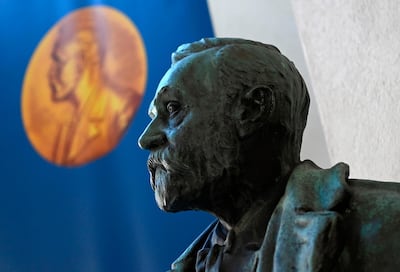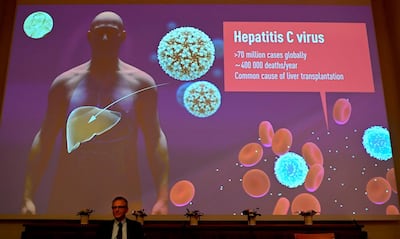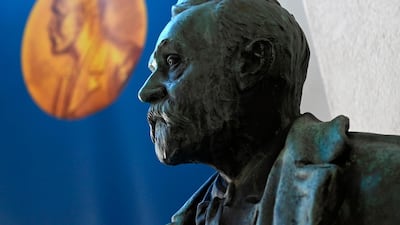Americans Harvey Alter and Charles Rice together with Briton Michael Houghton won the Nobel Medicine Prize for their work on Hepatitis C.
The Nobel Prize Jury said on Monday that their discovery of the virus had made a "decisive contribution to the fight against blood-borne hepatitis, a major global health problem that causes cirrhosis and liver cancer in people around the world".
Thanks to their discovery, highly sensitive blood tests for the virus are now available and these have "essentially eliminated post-transfusion hepatitis in many parts of the world, greatly improving global health", the Nobel committee said.
"For the first time in history, the disease can now be cured, raising hopes of eradicating Hepatitis C virus from the world population," it added.
The World Health Organisation estimates there to be around 70 million Hepatitis C infections globally, causing around 400,000 deaths each year.

Prior to the trio's work, the discovery of the Hepatitis A and B viruses had seen critical steps forward, but the majority of blood-borne hepatitis cases remained unexplained.
Science is expected to take centre stage at the 2020 Nobel prize awards as the world battles the coronavirus pandemic.
The most obvious change to the programme for the awards in the sciences, economics and literature is the cancellation of the traditional presentation ceremony in Stockholm. The separate Peace Prize ceremony in Oslo will be held in a scaled-back version.
However, there are also more profound changes affecting what the Nobels mean in a world confronted not just by the present threat of Covid-19 but also by the looming climate crisis.
Ahead of the awards, Nobel Foundation head Lars Heikensten has said the pandemic is a crisis “for all of humanity”.

“It illustrates how important science is," he added.
No prizes were expected to be awarded this year for work directly linked to the new coronavirus, as Nobel prize-winning research usually takes many years to be verified.
The prize-awarding committees are "not in any way influenced by what is happening in the world at the time," Erling Norrby, the former permanent secretary of the Swedish Royal Academy of Sciences which awards the science prizes
Mr Alter was credited for his pioneering work studying the occurrence of hepatitis in patients who had received blood transfusions, determining that their illness was neither Hepatitis A or B.
Mr Houghton built on Mr Alter's work to isolate the genetic sequence of the new virus.
Mr Rice subsequently completed the puzzle by using genetic engineering to prove that it was the new strain alone, Hepatitis C , that was causing patients to get sick.
The trio will share the Nobel prize sum of 10 million Swedish kronor (about $1.1 million).

